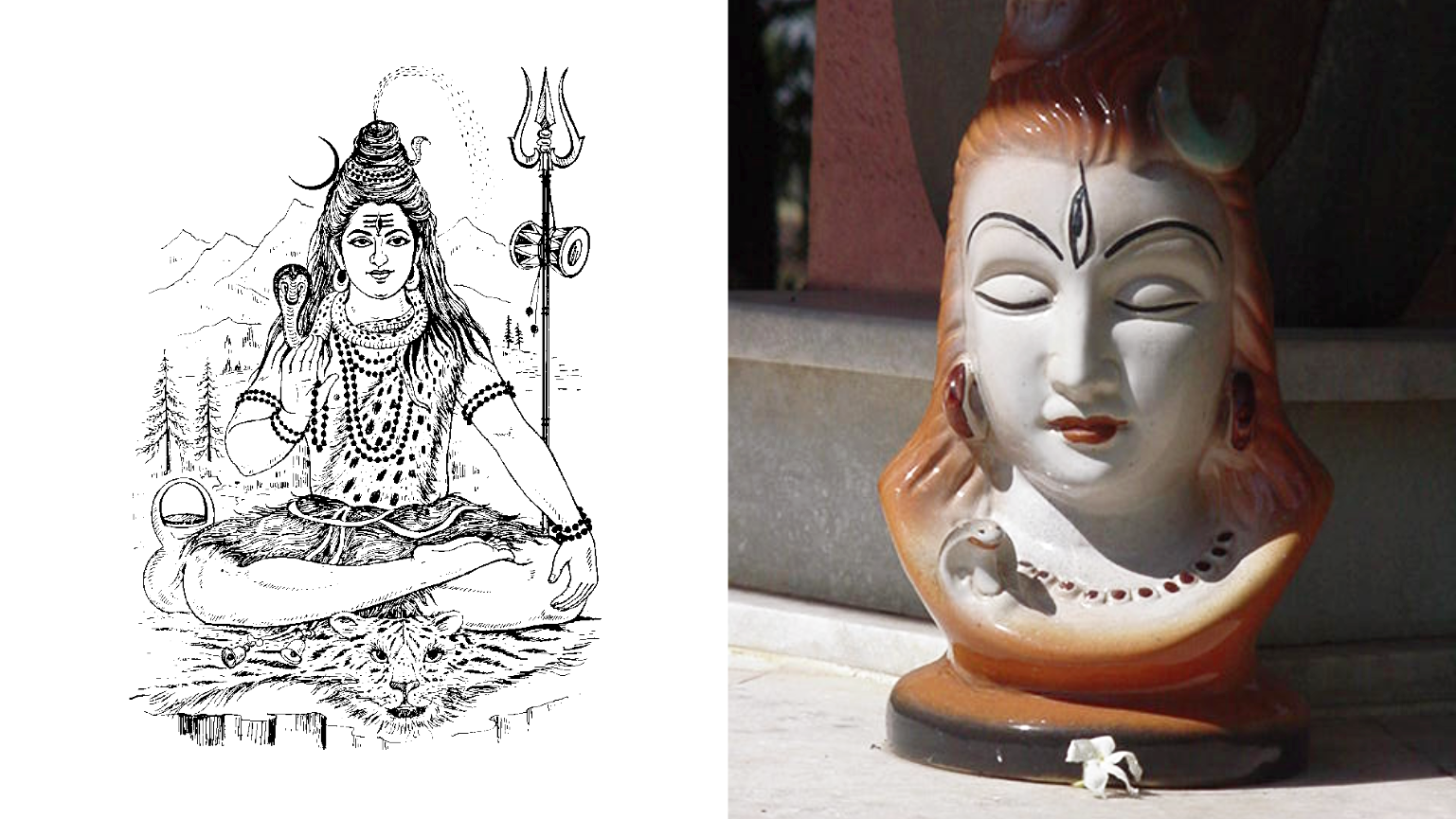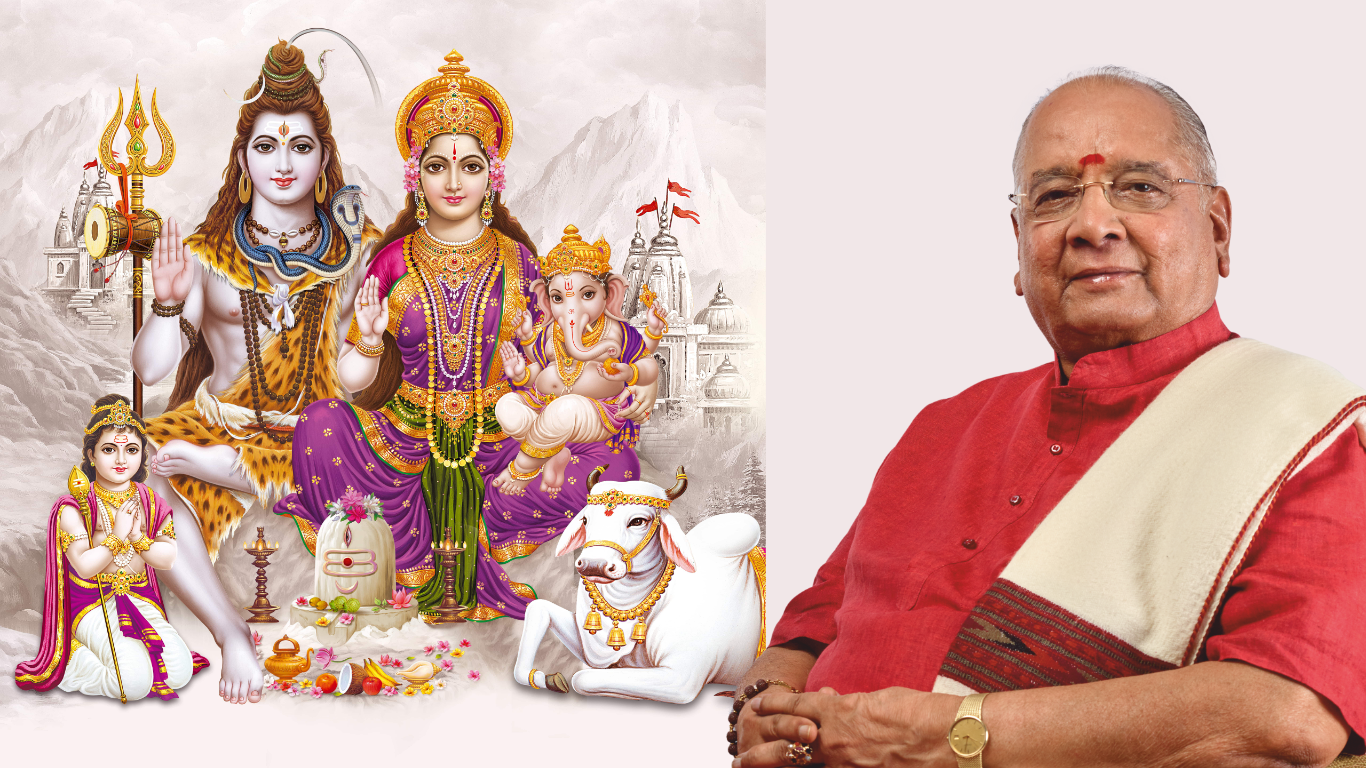This year the tithi (lunar day) of Mahashivaratri will fall on 1st March, 2022. Mahashivaratri, meaning the ‘Great Night of Shiva’, is a festival, as well as a vow (or promise to make an effort to change oneself). It is celebrated on the fourteenth day (Shiva Chaturdashi) of the waning half of the lunar month Phalgun (February-March). The festival is observed throughout India, whereby devotees keep a fast throughout the day and remain awake the whole night, either engaging themselves in meditation, japa (chanting), kirtan or reciting Shiva stotras. The ‘Lingum’, the symbol of Lord Shiva, is worshipped by pouring Gangajal (sacred water from the River Ganges) and milk with curd, honey and ghee over it. Bel (Aegle Marmelos) leaves, dhatura (Datura alba) fruit and aak(Calatropis/Rui) flowers are also offered to Lord Shiva. Bel leaves are considered very sacred and dear to Lord Shiva.
Known as Mahadeva (Great God or God of Gods), various Gods including Brahma and Vishnu worship him. As Mahakal, he destroys and dissolves everything into nothingness, but known as Shankar at the same time, he also restores and reproduces that which has been destroyed and dissolved.
Though all the fourteenth days (Chaturdashis) of the waning half of every month are devoted to Lord Shiva, worshipping Him in Phalgun has special significance. This arises from a story about a hunter named Suswar who lived in Varanasi, who earned his living by killing and selling birds and beasts. One day, while on a hunting expedition, Suswar, who was an excellent game hunter, was unable to catch any prey. This was unusual for him and though it was getting late, he did not want to return home empty-handed. He found an area with a pond and ample trees and decided to stay there, as he thought animals would surely come and feed at such a place. He climbed up a bel tree and awaited the prey.

Eventually, it became dark and cold. Hungry and thirsty, Suswar began to shiver muttering the sound, ‘Shiv-Shiv’ with cold and in his attempt to stay awake, he sat plucking the leaves of the bel tree, until he had plucked out most of them. As the bel leaves fell from the tree, they dropped on a Shiva Lingum, which lay at the bottom of the tree. Lord Shiva, considering the man a devotee chanting, ‘Shiva-Shiva’ and offering bel leaves in worship, was highly pleased with him and blessed him for the fulfillment of his desire.
Suddenly, to Suswar’s delight, three does (female deer) appeared. As he jumped from the tree to capture them, the does were overcome with fright. They pleaded with Suswar to let them go, as they wished to take food back for their hungry children, and then promised to return. In trust, the hunter let them go. Soon after, as promised, the does returned with their children and offered the hunter their lives.
Upon seeing the helpless young does the tearful hunter was overwhelmed with sympathy and could not bring himself to kill them. At that moment of compassion, the hunter saw the image of Lord Shiva in his heart, as the image of his own true nature. This insight caused the transformation of the hunter’s cruel feelings into commpassionate thinking. Suswar, the hunter, freed the does and vowed to lead a good life thereafter. Shiva was pleased with the hunter’s realization and granted him Moksha or Shivaloka.
The Puranic stories say that in a later life, the hunter incarnated as a great King, named Chitrabhanu, who worshipped Shiva with the rituals that are still in practice today on Mahashivaratri. Thus, to this day, devotees fast on the day of Shivratri, staying awake all night and worshipping the Shiva Linga by offering bel leaves, seeking the blessings of Lord Shiva’s power of transformation, to lead better and more fulfilling lives.
